Our editors independently select these products. Making a purchase through our links may earn Well+Good a commission
8 surprising good-for-your-gut superfoods you should be eating
See a roundup of prebiotic foods that help with digestion and gut health.
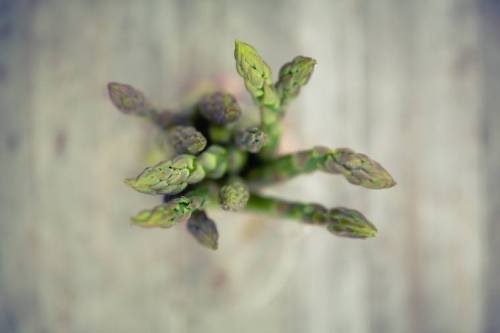
Bacteria has been a hot topic lately—and not because everyone’s trying to banish it with Purell.
A robust microbiome—AKA the bacteria that calls you home—helps to improve digestion, metabolism, and immunity. And in his book, The Microbiome Diet, Raphael Kellman, MD, says its healthy power goes even further.
“[The microbiome is a] whole inner world that lives within your intestines—trillions of tiny microbes that help you extract the nutrients from your food, balance your mood, and sharpen your clarity and focus,” he says. “When we eat the foods that keep this inner world in balance, we also feel more energized than ever before and develop healthy, glowing skin.”
You’ve probably already heard of putting probiotic foods like fermented kimchee or Kefir—which contain healthy live bacteria—on your plate for that reason. But there are also foods and spices—called prebiotic foods— that nourish the healthy bacteria already living in your body. You need both kinds to keep your microbiome balanced, Dr Kellman says.
With that in mind, here are eight surprising prebiotic superfoods to add to the whole-food, plant-filled diet you’re already rocking. Right?
Originally posted August 5, 2015. Updated July 19, 2017.
Keep reading for 8 surprising superfoods.
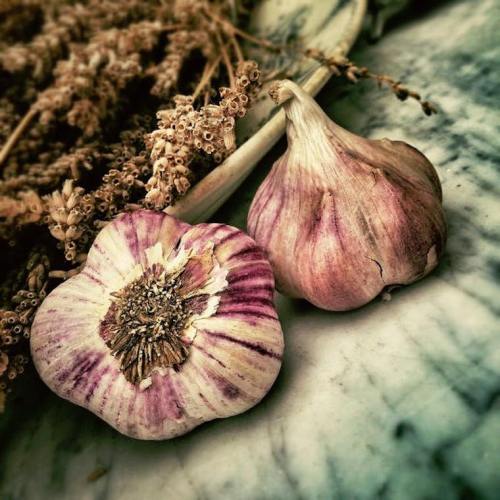
1. Garlic
“This has a wonderful effect on immunity—it’s not only an incredible prebiotic, but it helps the microbiome proliferate,” Dr. Kellman says. It also helps combat unfriendly gut bacteria. You’d better start carrying around your toothpaste.
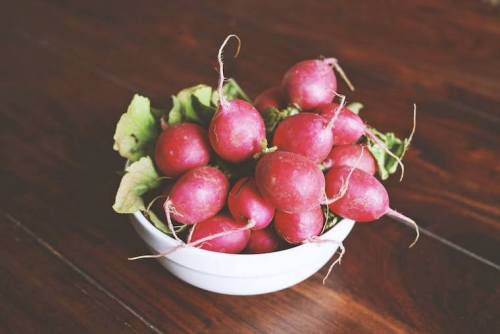
2. Radishes
Radishes contain compounds called arabiongalactans (say that five times fast), which good bacteria in the intestinal tract thrive on. “They are a wonderful snack food—filling, nutritious, and nourishing to your microbiome,” writes Dr. Kellman. Plus, aren’t they pretty?
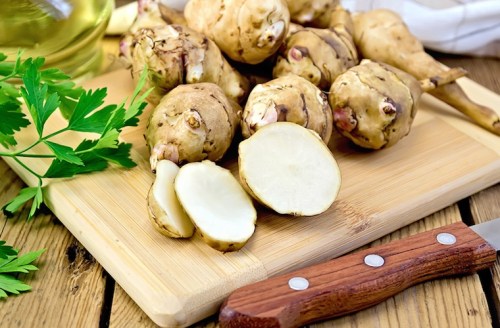
3. Jerusalem artichoke
Inulin is a fiber found in lots of fruits and veggies that’s also a natural prebiotic—and Jerusalem artichoke is full of it. “Inulin has no calories, but it still leaves you feeling full…and between 14 and 19 percent of the weight of Jerusalem artichoke is inulin,” writes Dr. Kellman.
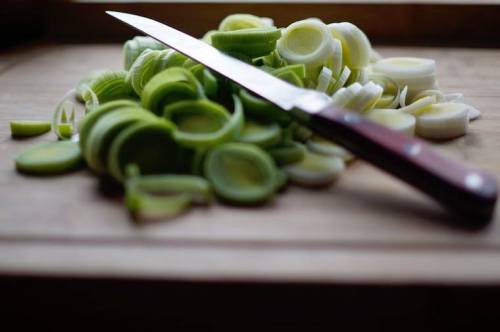
4. Leeks
Good news about this farmers’ market favorite: “High in both dietary fiber and flavonoids…they have a lot of manganese, which produces digestive enzymes, as well as high quantities of vitamin A, which is key for healing your gut wall,” writes Dr. Kellman.
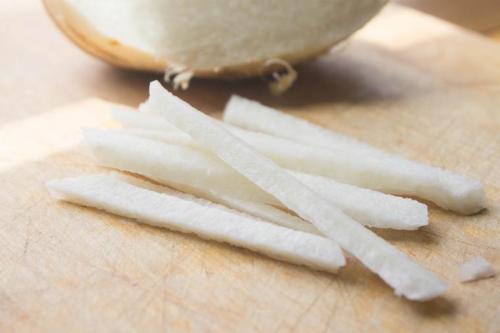
5. Jicama
This root vegetable does way more than satisfy your crunch craving. “[It] provides a high content of inulin and has a healthy effect on the production of important compounds that get the microbiome to produce bacteria,” Dr. Kellman says.

6. Asparagus
Asparagus is a microbiome balancer of many hats. It “leaves you feeling full, helps you lose weight, and is rich in inulin, which feeds the microbiome,” Dr. Kellman says. It also contains multiple nutrients that help heal the gut wall and magnesium, which is needed for digestive enzymes.
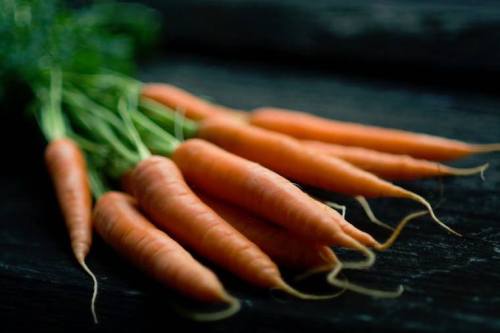
7. Carrots
Add these colorful root veggies to your lunch salad, and your gut and skin will thank you. Remember those crazy compounds that radishes were full of ? (Read: arabinogalactans) Carrots contain them too (they’re a type of fiber), and they’re a powerful, natural prebiotic, Dr. Kellman says.
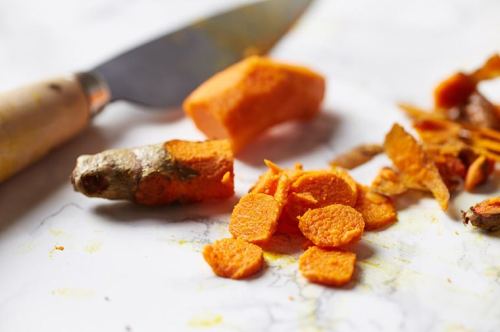
8. Turmeric
This spice rack staple—and trendy nutritional supplement—does wonders for inflammation. “[It’s] a natural anti-inflammatory that helps heal the gut, support the microbiome, and promote good brain function,” writes Dr. Kellman.
If bloating is your problem, it could be your salad—or too much of this particular superfood.
Sign Up for Our Daily Newsletter
Get all the latest in wellness, trends, food, fitness, beauty, and more delivered right to your inbox.
Got it, you've been added to our email list.










